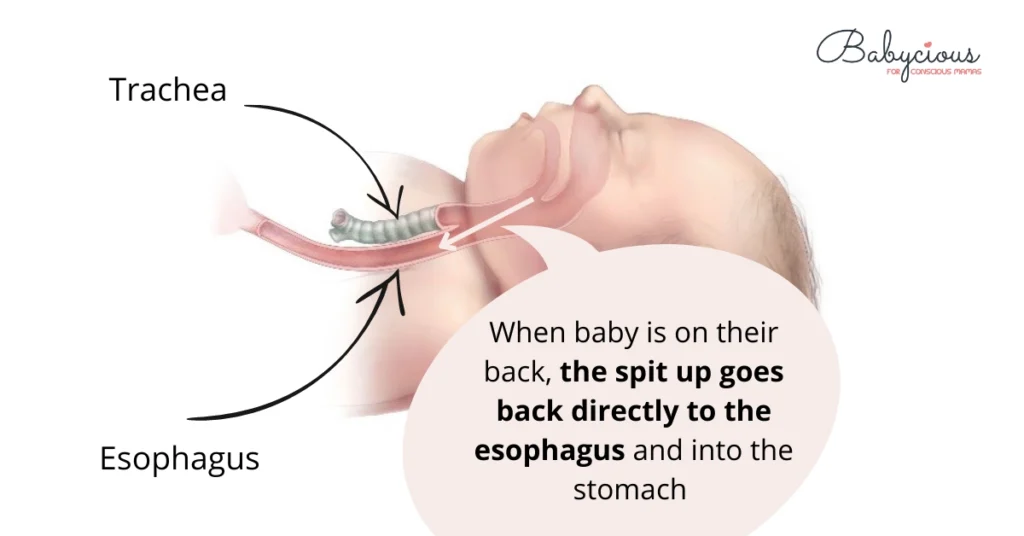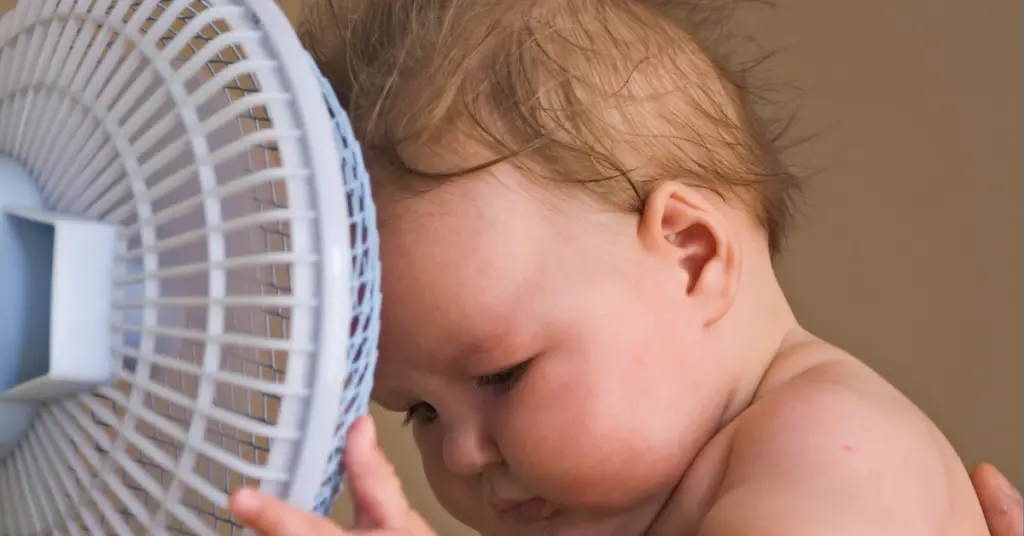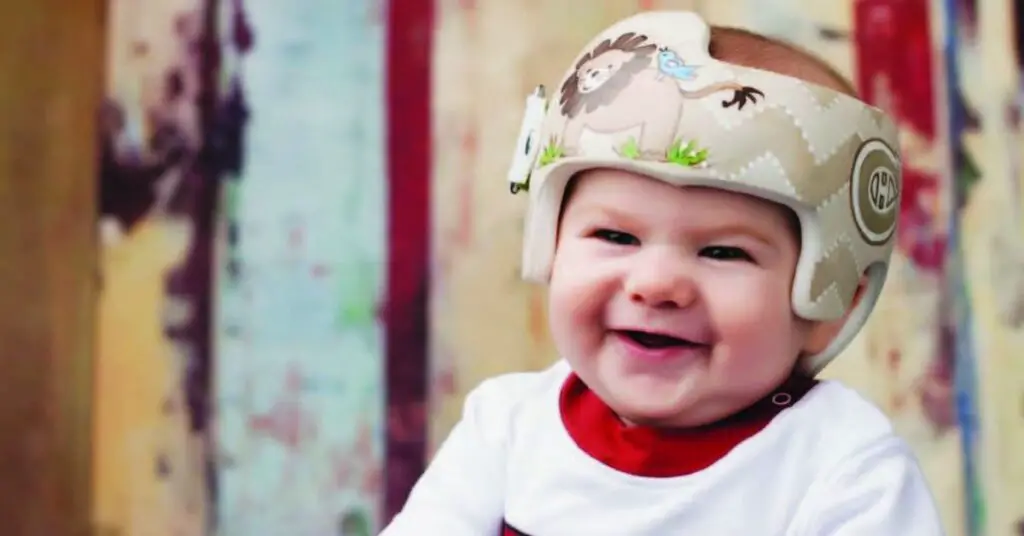Worried about your baby choking on spit-up? Don’t be! Learn more about why babies are designed to spit up without choking and how you can help keep them safe.
The products mentioned on this page were independently selected by Babycious editors. As an Amazon Associate, Babycious may earn a commission from qualifying purchases.

Photo by Yan Krukov
It’s a terrifying thought for any parent: your baby choking on spit-up. As a new mom, I was really worried about it too, especially with a baby that was spitting up all the time. I used to check up on my daughter multiple times while she was asleep and it was nerve-racking! While I haven’t had any choking incidents with my daughter, it was certainly worrisome for me until I read the research.
So, can baby choke on spit-up? The short answer is no, provided you follow the safe sleep basics, especially putting your baby to sleep on their back. This is because healthy babies have a reflex that makes them naturally swallow or cough up spit up without choking on it. However, if your baby is lying on their stomach, they may not be able to clear the excess fluids as efficiently and could choke on the spit-up.
The explanation given by the National Institute of Child Health and Human Development is that when a baby is lying on his or her back, the trachea (the tube that carries air to the lungs) is positioned on top of the esophagus (the tube that connects the mouth to the stomach). So when your baby spits up, the milk will flow back down the esophagus into the stomach rather than to the lungs.

However, if your baby is lying on his or her stomach, the trachea is positioned below the esophagus. So the spit-up can more easily flow down the trachea and into the lungs, causing your baby to choke or aspirate.
What You Can Do About It
If your baby is spitting up frequently, and you are worried about them choking in their sleep (although there is VERY little chance of this happening), here are some things you can do:
Stick to The Safe Sleep Guidelines
This is the single most important thing you can do to reduce the risk of your baby choking or aspirating in their sleep. These guidelines include:
- Making sure your baby is always sleeping on their back, in a crib or bassinet that meets current safety standards.
- Using a firm sleep surface, with no pillows, blankets, stuffed animals, or other soft objects in the crib.
- Keeping your baby’s sleep area clear of any cords or strings that could wrap around their neck and choke them.
Following the safe sleep basics will not only help to reduce the risk of your baby choking on spit-up but also the much more common (and dangerous) risks of SIDS and suffocation.
Buy Yourself Some Peace of Mind
Although following the safe sleep guidelines is more than enough to keep your baby safe from choking on spit-up, it may still be hard for us as parents to stop worrying about it.
One thing that helped me get through my constant worrying about my daughter’s safety was to get an Owlet. This tiny sock was a game changer and gave us true peace of mind because it continuously monitors the heart rate and notifies you whenever there is a lull.
You can also get a breathing monitor that will alarm you if your baby stops breathing for more than 20 seconds. This may give you the extra reassurance you need to sleep better at night.
What NOT to Do
You may get some advice from well-meaning friends or family members that tell you to do things that will actually increase the risk of your baby aspirating or choking on spit-up and compromise your baby’s safety overall (I’ve been there). Here are just some of the things you should NOT do in an attempt to prevent your baby from choking on spit-up:
- Using props to elevate your baby’s head when they sleep. This can include things like propping up their mattress with a pillow, putting them to sleep in a car seat or swing, or using a wedge under their mattress.
- Putting your baby to sleep on their stomach in the hopes that they would spit up less. As we talked about before, this is actually the most dangerous position for your baby to sleep in and increases the risk of SIDS and suffocation.
Important Note
While spitting up is very normal for healthy babies, if your baby is spitting up large amounts, or projectile vomiting, it is best to talk to your pediatrician to check for any potential issues like reflux and give you some guidance on how to best deal with it.
Although reflux is not dangerous, it can be very uncomfortable for your baby and they might be sleeping poorly if it’s the case.
Bottom Line
Babies are more resilient than we give them credit for. They are born equipped to deal with a lot of things that we as parents worry about on a daily basis.
So as long as you are following the safe sleep guidelines, there is very little chance that your baby will choke or aspirate on their spit-up. And if you are still worried, there are luckily some great products out there that can help to ease your mind and give you the peace of mind you need to get a good night’s sleep.
The purpose of this article is informative and educational only. It’s not a substitute for medical consultation or medical care. We do not accept any responsibility for any liability, loss, or risk, personal or otherwise, incurred as a consequence, directly or indirectly, from any information or advice contained here. Babycious may earn compensation from affiliate links in this content.




Thank-you for this! My baby stopped breathing for a few seconds after a little cough and I almost died. But praise God she started again, I flipped her and patted her back. Now I’m reading up on it because I’m so freaked out. Your post has helped to ease my worry somewhat. I lay here at 1am with little girl on my chest because I want to feel her breathing for a while before I lay her back down ❤️🙂😭.
Hi Linda, I am so glad to hear that your baby is okay! It’s completely understandable to feel worried and anxious after such an experience, and it’s great that you’re taking the time to read up on how to respond to emergency situations like this. Your love and concern for your baby is truly heartwarming. Take care, you’re doing great ♥♥